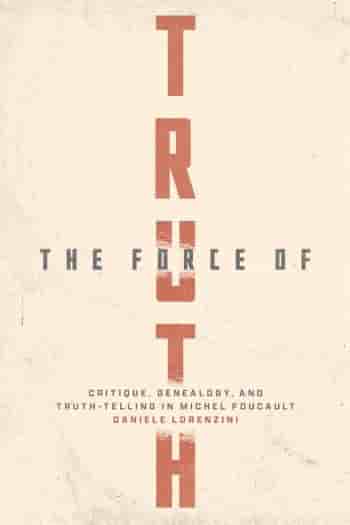 Umschlag
UmschlagReview of Daniele Lorenzini: The Force of Truth: Critique, Genealogy, and Truth-Telling in Michel Foucault. Chicago/London: The University of Chicago Press, 2023.
In Constellations 31.2 (2024), 291–293. 2024Abstract
Lorenzini elucidates Foucault’s lifelong project of a history of truth, situates Foucault’s late analysis of parrhesia within that project, and demonstrates how this yields a different understanding of Foucault’s genealogical critique. Along the way, he argues vehemently against readings of Foucault that turn him into a relativist and against Nancy Fraser’s and Jürgen Habermas’ criticism that Foucault’s critique lacks normative foundations.